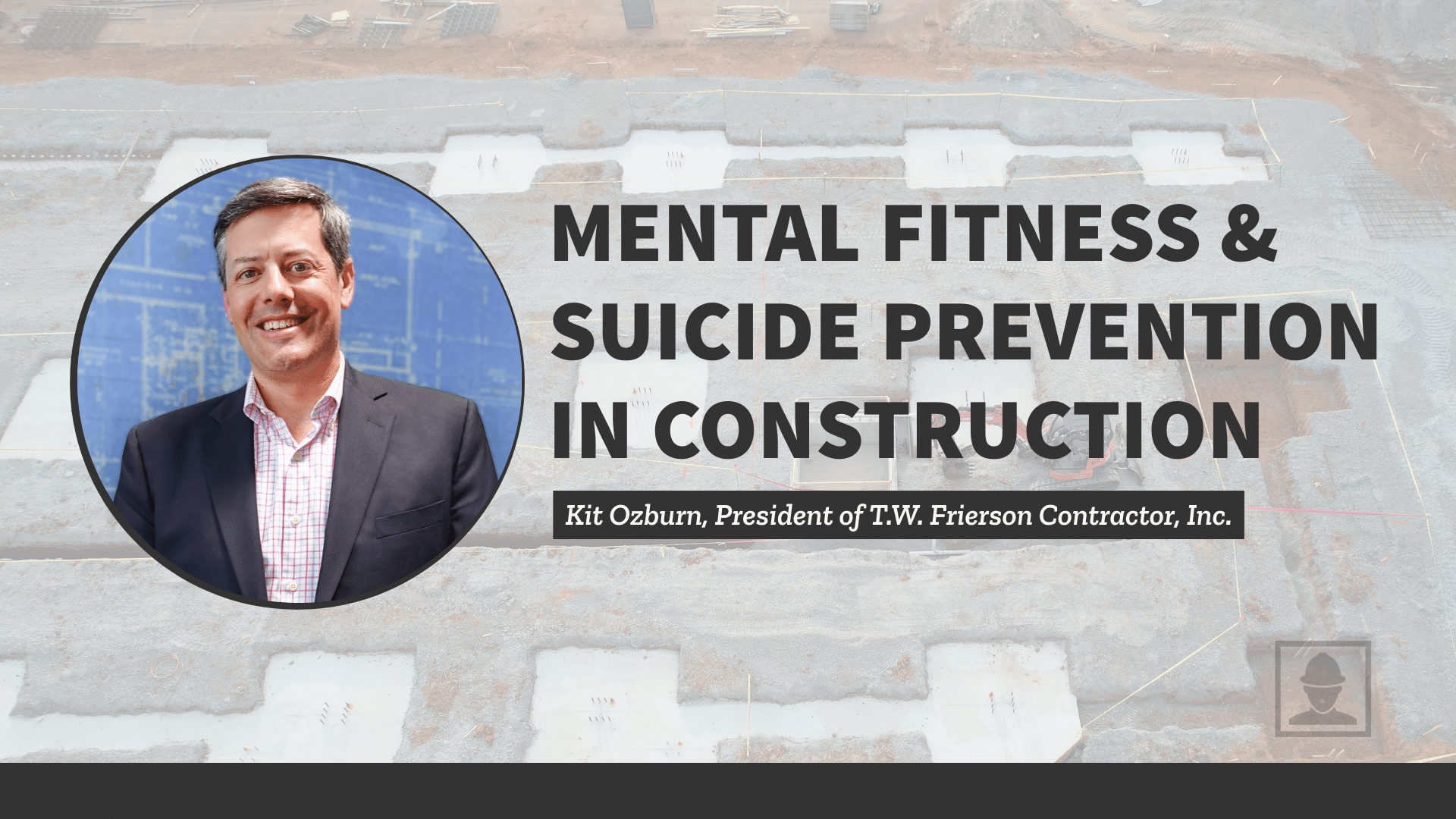Provided by Kit Ozburn, President of T.W. Frierson Contractor, Inc.
View original post on Kit’s LinkedIn
“Kit, I’m lucky as hell!”
As I looked into my friend’s face, I struggled to reconcile his words with the harsh reality that he had only weeks left to live. A sudden and aggressive cancer had spread throughout his body. Yet somehow, he was radiant with smiles and positivity.
Now retired, my dear friend is a respected leader in our construction industry. He wasn’t optimistic that he could beat the cancer, rather, he was grateful. Grateful for the chance to laugh through stories with lifelong friends and to say proper goodbyes to those he loves in his remaining days.
What was different about my friend? In a similar scenario, I could imagine myself firing up the world’s largest pity party! But what he showed me that day was a heroic degree of mental fitness. I was witnessing the incredible power of mental fitness to transform even the hardest situations.
That experience made me wonder: how can our beloved construction industry harness the same power of mental fitness?
At T.W. Frierson we have made incredible strides to promote the safety of our jobsites. Countless hours are spent performing safety trainings, teams prepare projects for safety provisions, and pre-task planning precedes even seemingly simple operations. Even “stretch and flex” exercises are routine to prepare our bodies for the physical demands of the day.. These practices have become habits, and the industry celebrates lagging indicators of safety performance data. But what about what is happening under the hardhat? Could it be that our industry has wonderful TRIR and EMR performance metrics, and the mental fitness of the industry is lagging?
This week is Construction Suicide Prevention Week. The statistics for mental health and suicide in our industry are heartbreaking. Yet I’m encouraged by broad initiatives like the Construction Industry Alliance for Suicide Prevention that are driving awareness and resources forward.
Employee-owners at T.W Frierson are beginning to explore this field of mental fitness. Chaplains routinely visit jobsites to build relationships with team members. Sabbaticals give employee-owners a chance to recharge and reflect on significant life events. I am so proud that these benefits extend to ALL employee-owners regardless of office, field, executive, laborer, salary or hourly. Because if safety is non-negotiable, mental health must be too.
What if industry job sites were filled with men and women exercising their mental fitness? What if pre-task planning included time for metal wellbeing alongside rigging, lifts, and other safety essentials? What if onboarding and ongoing training integrated mental fitness as a core part of health and safety?
When my dear friend does pass, his memory will forever encourage me to pursue his inspiring degree of mental fitness. Because of him, I feel “lucky as hell” to be stewarding a mission to improve mental health in our industry.

